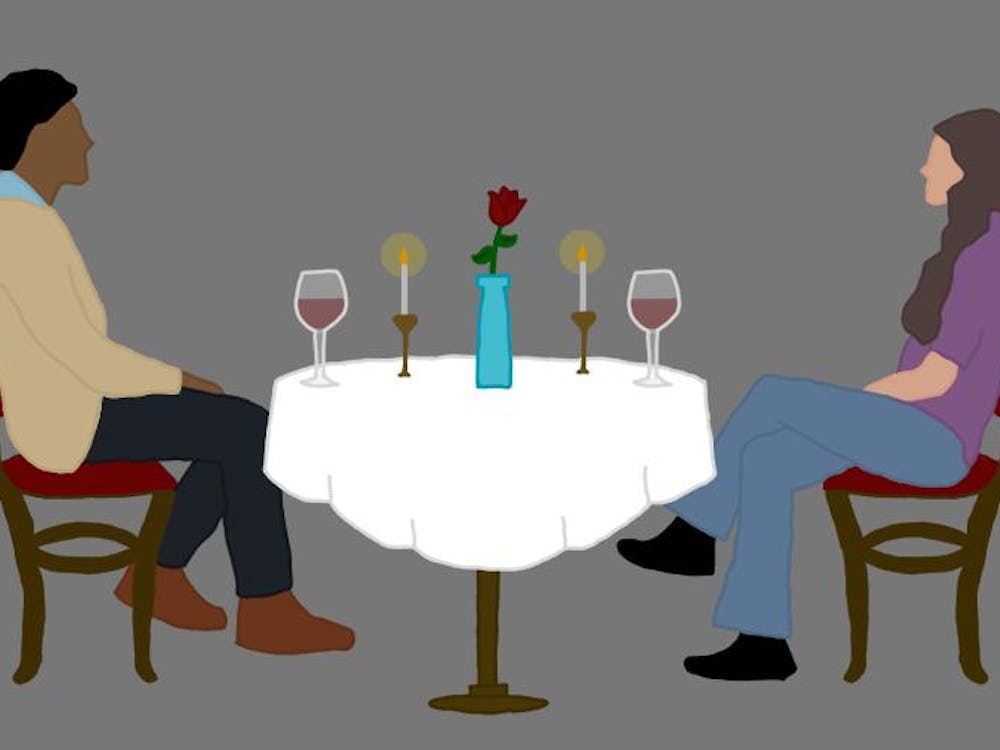Myra Franklin knows how much work it takes on the part of how many people to get a kid all the way through school and into college.
"I'm cognizant of the fact that I didn't get here by myself," Franklin said.
The fourth-year College student and president of the Black Student Alliance says she was fortunate to have friends and role models who gave her guidance as she grew up.
Now she is taking advantage of an opportunity to return the favor: The University Community Relations Office's "Day in the Life" program.
The program pairs students at Charlottesville's Buford Middle School who show the academic potential to reach college with University students who are eager to help them get there.
Through spending time with these college students and getting an idea of what college life is like, the program hopes to inspire middle schoolers to stay on the academic track they need through high school to get into college.
The program is also an inspiration for many of the volunteers.
"I'm happy knowing that someone is going to achieve more than they would have, just from being in contact with me," Franklin said.
Loren Intolube-Chmil and Marlene Lewis, two Americorps volunteers who work with the program through Volunteers in Service to America (VISTA), both said they are similarly inspired by their commitment to kids.
Lewis is a retired District of Columbia educator. Intolube-Chmil is a mother with four children in the Charlottesville city school system.
"I know so many kids, and I want to see them go however far they are able to go," Intolube-Chmil said.
Intolube-Chmil and Lewis have coined a phrase to describe the purpose of the program.
"We want to foster in the mentees the belief in their own ability to succeed," Intolube-Chmil said.
"Day in the Life" began a year ago in response to a number of incidents that resulted from friction between the University and the Charlottesville community.
The need for such a program became apparent in a series of meetings held to address the incidents.
"One of the things that came out was that the University was not doing enough in response," said Danny Wilmer, supervisor for "Day in the Life." "It was one need that they had assessed."
Last year, the program had 35 pairs of mentors and mentees. This year, with an earlier start, Wilmer hopes to expand to 50 or 70.
The program's administration will also expand this year. In addition to adding the two Americorps volunteers, the program hopes to set up 10 of last year's mentors as coordinators to oversee small groups of other volunteers and facilitate communication.
The middle schoolers are chosen through a program that is already in place.
"We're very fortunate in having Edie Wheeler with the talent development program for the City of Charlottesville," Wilmer said. "She had had kids who were recommended or tested and showed that they had the ability to go on to school."
The program hopes that if those kids are started on the right academic path now, they will make it to college. In many cases, these are kids who might not have otherwise.
"These children may be first generation college graduates. There may not be anyone around saying 'You can do this, you have the potential,'" Wilmer said. "The [college] students are giving back something they've probably received themselves."
The mentors are chosen through an application process, which is available online through the community relations website or through contacting the office itself.
After a round of interviews, the chosen students go through a training process that combines information on responsibilities for the year, elements of VISTA's mentoring training and other resources.
"We're teaching them how not to go in with assumptions about these kids and their lives," Intolube-Chmil said. "Last year we also concentrated on the U.Va. students realizing that they are the experts. We look for people who have worked through their own disappointments and been responsible for their behavior."
Wilmer hopes this year to get more male mentors.
"80 percent of the volunteers are women, and we do have a lot of males in the program that need guidance," Wilmer said.
Volunteers are asked to commit one to three hours with their mentee per week. Once a month the office organizes an activity for the group, and the volunteers are asked to make every effort to be there as well.
Franklin said the commitment wasn't too strenuous.
"It seems overwhelming at first but it's not that bad," Franklin said. "They try to fit things into your schedule."
The primary focus of the program is on academics -- volunteers take their students to classes and other activities that demonstrate what life as a college student is about -- but there are also social and athletic events.
Part of the training, according to Intolube-Chmil, is teaching the mentors to set boundaries in their relationship.
"They aren't meant to be a friend or a surrogate parent," Intolube-Chmil said. "They're meant to be role models and support systems."
The program asks for a one year commitment from the volunteers.
"We'd love to have them make a lifetime deal of it," Wilmer said. "That would be the ideal situation."
In fact, the program will increase by default this year to include Charlottesville High School, because some of the students from last year have moved on to ninth grade.
Intolube-Chmil said she has already heard from about 10 percent of last year's volunteers who want to participate again this year.
Franklin is certainly one of them.
"I plan to keep my same mentee," she said. "I'm going to help out any way I can."
Wilmer said using this program to get involved with the community brings University students a great sense of accomplishment.
"That service to the community is something I think everyone should strive for," Wilmer said. "The volunteers get as much out of it as the students do."
He also said he hopes the program will realize its original purpose of easing relations between the university and the community.
The goal is eventually for the neighborhoods themselves to run the program, with support from the University.
"It's another chance for the community and the University of Virginia to grow together," Wilmer said.






